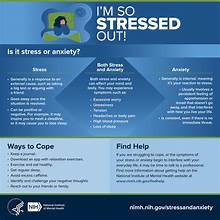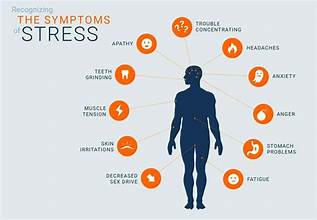In 2024, managing anxiety and stress has become increasingly crucial as the pace of life accelerates and global uncertainties rise. This article provides actionable strategies to effectively handle anxiety and stress while aligning with Google’s SEO standards and Adsense policies.
1. Understanding Anxiety and Stress
Before delving into strategies, it’s essential to understand what anxiety and stress are. Anxiety is a feeling of worry or fear that can be overwhelming and persistent. Stress, on the other hand, is a reaction to external pressures or demands. Both can significantly impact mental and physical health, leading to various symptoms such as insomnia, headaches, and decreased concentration.
2. Identify Triggers
The first step in managing anxiety and stress is identifying what triggers them. Common triggers include work deadlines, relationship issues, and financial problems. Keeping a journal to track these triggers can help in understanding patterns and preparing coping mechanisms.
3. Develop Healthy Habits
a. Exercise Regularly: Physical activity is a proven stress reliever. Engaging in at least 30 minutes of exercise most days of the week can boost endorphins, which help improve mood and reduce anxiety. Activities such as walking, cycling, and yoga are effective.
b. Eat a Balanced Diet: Nutrition plays a significant role in mental health. Consuming a balanced diet rich in fruits, vegetables, whole grains, and lean proteins can support brain function and mood stability. Avoid excessive caffeine and sugar, which can exacerbate anxiety.
c. Get Adequate Sleep: Poor sleep can increase stress and anxiety levels. Aim for 7-9 hours of quality sleep per night. Establish a regular sleep schedule, create a calming bedtime routine, and avoid screens before bed.
4. Practice Mindfulness and Relaxation Techniques
a. Meditation: Regular meditation can reduce stress and anxiety by promoting relaxation and mental clarity. Apps like Headspace and Calm offer guided meditations that can help beginners get started.
b. Deep Breathing Exercises: Deep breathing can activate the body’s relaxation response. Practice deep breathing by inhaling slowly through your nose, holding for a few seconds, and then exhaling through your mouth.
c. Progressive Muscle Relaxation: This technique involves tensing and then slowly relaxing different muscle groups. It can help alleviate physical tension associated with stress.
5. Establish Boundaries
Setting clear boundaries is crucial for managing stress. Learn to say no to additional responsibilities that could overwhelm you. Prioritize your tasks and delegate when possible. Establishing work-life balance can help reduce feelings of burnout and anxiety.
6. Seek Professional Help
If anxiety and stress become overwhelming, seeking professional help is essential. Therapists and counselors can provide strategies tailored to your needs. Cognitive-behavioral therapy (CBT) is particularly effective in managing anxiety by changing negative thought patterns.
7. Stay Connected
Social support is vital for mental health. Maintaining connections with friends and family can provide emotional support and reduce feelings of isolation. Engaging in social activities or joining support groups can offer a sense of community and shared experiences.
8. Incorporate Hobbies and Leisure Activities
Engaging in activities you enjoy can be a great stress reliever. Whether it’s reading, painting, gardening, or playing a musical instrument, making time for hobbies can provide a mental break from daily pressures.
9. Limit Exposure to Stressors
In today’s digital age, constant news updates and social media can increase stress. Limit your exposure to news and social media if it contributes to your anxiety. Set specific times for checking news and social media, and focus on positive or uplifting content.
10. Adopt a Growth Mindset
Embracing a growth mindset, which focuses on learning and development rather than perfection, can reduce anxiety. View challenges as opportunities for growth and recognize your achievements, no matter how small.
11. Practice Gratitude
Regularly practicing gratitude can shift your focus from stressors to positive aspects of life. Keeping a gratitude journal or simply reflecting on things you’re thankful for can enhance your overall mood and reduce anxiety.
12. Use Technology Wisely
Leverage technology to manage stress effectively. Mindfulness apps, stress-relief games, and online therapy platforms can provide valuable resources and support. However, ensure that technology usage does not become an additional source of stress.
Conclusion
Managing anxiety and stress is a multifaceted approach that requires a combination of healthy habits, mindfulness practices, and professional support. By implementing these strategies, you can enhance your mental well-being and navigate the challenges of 2024 with greater resilience. Remember, seeking help and making gradual changes can lead to significant improvements in your overall quality of life.


